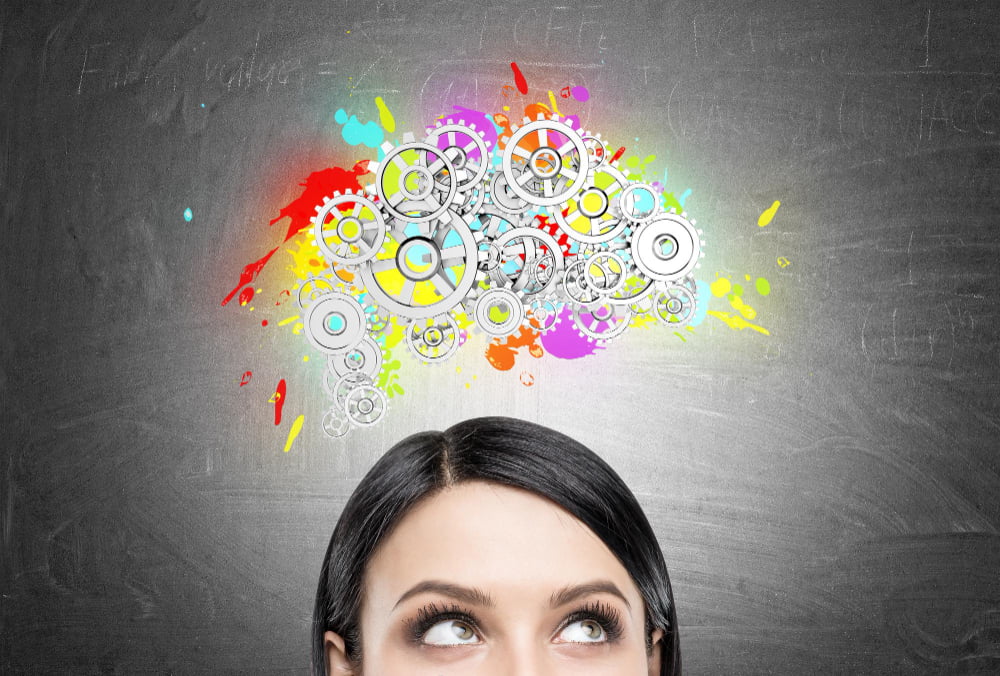In the quest to understand why memory diminishes, many find themselves entangled in the complexities of memory loss and dementia. Understanding memory loss is important because these conditions not only affect the individuals experiencing them but also their families, caregivers, and the wider healthcare community. The distinction between normal forgetfulness and the early stages of dementia is often subtle yet critical for providing timely care and support.
At an early stage, you can also benefit from finding your cognitive age and how it compares to your actual age.
Understanding Memory Loss
Causes of memory decline
The question of “why my memory is decreasing” can be answered through a multifaceted lens. Age is a natural factor; however, memory loss causes extend beyond the inevitable passage of time. Neurological diseases such as Alzheimer’s disease significantly impact cognitive functions. Lifestyle factors, including poor diet, lack of sleep, and minimal physical activity, also contribute to cognitive decline, underscoring the importance of brain health.
Asking “why is my memory decreasing?” leads us down many paths. Sure, getting older plays a part, but there’s more to it than just the years passing by. Diseases like Alzheimer’s really mess with how our brains work. And how we live – what we eat, how we sleep, and if we stay active – has a big impact on our memory.
Types of memory impairment
Memory impairments manifest in various forms, including episodic memory loss, where individuals struggle to recall recent events, and semantic memory loss, affecting the recall of general facts and knowledge. Understanding these distinctions is crucial for diagnosing and treating memory-related conditions.
Signs and symptoms of memory loss
The early signs of memory slipping can be pretty subtle – misplacing things, forgetting important dates, or struggling to find the right words. These little slips might not seem like a big deal at first, but if they stick around and make daily life hard, it could be a sign of something more serious.
Exploring Dementia
Definition and types of Dementia
Dementia is an umbrella term covering multiple neurological disorders, with Alzheimer’s disease being the most prevalent. These conditions are characterised by a decline in memory, problem-solving skills, and other activities that helps us get through the day.
Risk factors and predisposing conditions
Understanding the risk factors, including age, genetics, and lifestyle, is essential for identifying those at higher risk of developing dementia. Certain conditions, like cardiovascular disease and diabetes, also predispose individuals to cognitive decline, highlighting the interconnectedness of physical and brain health.
Progression and stages of Dementia
Dementia’s progression is typically gradual, moving from mild cognitive impairment, where daily activities are slightly affected, to severe dementia, characterized by a near-total dependency on caregivers. Recognizing the stages helps in planning for care and interventions that can improve the quality of life for those affected.
Memory Loss vs. Ageing
Distinguishing between memory loss as a consequence of aging and as a symptom of a more serious condition like dementia is vital. While age-related memory changes are expected and usually mild, dementia-related memory loss progressively worsens and significantly impacts daily functioning, necessitating a deeper investigation into its causes and treatments.
Preventing Memory Loss
Lifestyle factors influencing Brain Health
Want to keep your memory sharp? A healthy lifestyle plays a crucial role in preventing memory loss. Regular physical activity, a balanced diet rich in omega-3 fatty acids, antioxidants, and maintaining social connections are proven strategies to support cognitive function and delay the onset of memory loss.
Strategies for maintaining Cognitive Function
Mental stimulation through puzzles, reading, and learning new skills, along with social engagement, helps maintain cognitive functions. These activities stimulate the brain, fostering neural growth and reducing the risk of cognitive decline.
Managing Dementia
Diagnosis and assessment of Dementia
Early diagnosis is key to managing dementia effectively. It involves comprehensive assessments including medical history, cognitive tests, and sometimes neuroimaging to identify the type and extent of dementia, facilitating appropriate interventions.
Treatment options and supportive care
Although there is currently no cure for most types of dementia, available treatments concentrate on symptom management and enhancing quality of life. Approaches may include medications, cognitive therapy, and personalized supportive care, all of which can play a crucial role in effectively managing the condition.
Coping strategies for caregivers and family members
Providing care for someone with dementia presents significant challenges. Caregivers greatly benefit from education about dementia, access to resources, and a supportive network. Effective strategies encompass establishing consistent routines, simplifying tasks, and utilizing non-verbal communication to foster connection and offer comfort.
Promoting Brain Health
Nutrition and diet recommendations for cognitive health
Your diet plays a crucial role in keeping your brain sharp. Opt for foods rich in antioxidants, vitamins, and omega-3 fatty acids, such as leafy greens, berries, and fatty fish. These nourishing choices not only contribute to brain health but may also lower the risk of dementia.
Physical exercise and its impact on Brain Function
Regular physical exercise doesn’t just benefit your body—it’s a boon for your brain too. By increasing blood flow to the brain, exercise promotes neuronal health and could potentially stave off cognitive decline. Whether it’s a brisk walk, a refreshing swim, or a calming yoga session, staying active benefits individuals of all ages.
Mental exercises and Brain-Training techniques
Engaging in brain-training exercises such as memory games, puzzles, and learning new skills can improve cognitive functions. These activities stimulate the brain, potentially delaying the onset of memory loss and dementia.
40s & 50s.
Research and innovations
The field of dementia research is dynamic, with ongoing studies focused on uncovering the causes of cognitive decline, developing novel treatments, and understanding preventive measures. Recent advancements in drug therapies, lifestyle interventions, and diagnostic tools offer hope for better management and treatment of dementia.
Conclusion
Understanding memory loss and dementia is crucial for early detection, effective management, and providing support to those affected. By embracing preventive measures, staying informed about the latest research, and accessing available resources, individuals and caregivers can navigate the complexities of these conditions with greater confidence and compassion.
Frequently Asked Questions
Early signs include memory loss that disrupts daily life, challenges in planning or solving problems, difficulty completing familiar tasks, confusion with time or place, and changes in mood or personality.
While there’s no guaranteed way to prevent dementia, lifestyle factors such as regular physical activity, a healthy diet, mental stimulation, and maintaining social connections may reduce the risk.
Diagnosis involves a comprehensive assessment that includes medical history, physical exams, lab tests, and cognitive tests to evaluate memory, problem-solving abilities, attention span, and language skills. Neuroimaging tests like MRI and CT scans may also be used.
Alzheimer’s disease is characterized by the buildup of amyloid plaques and tau tangles in the brain, leading to memory loss and cognitive decline. Other dementias, like vascular dementia or Lewy body dementia, have different underlying causes and symptom patterns, such as movement issues or rapid changes in cognitive abilities.
While minor memory lapses can be a normal part of aging, significant memory loss or cognitive decline is not and may indicate the presence of dementia or other health issues.
Medications can manage symptoms or slow the progression in some cases. For Alzheimer’s, certain drugs can temporarily improve symptoms or slow down their progression. Other treatments focus on managing the behavioral symptoms and improving quality of life.
Lifestyle changes that may help include engaging in regular physical exercise, eating a balanced diet rich in fruits, vegetables, and omega-3 fatty acids, staying mentally active, and keeping a vibrant social life.
Dementia can significantly impact daily living activities, making it difficult for individuals to perform tasks such as personal care, household chores, managing finances, and driving, eventually requiring assistance or full-time care.
Genetics can influence the risk of developing certain types of dementia, such as Alzheimer’s disease. However, lifestyle and environmental factors also play a crucial role, and having a family history does not guarantee that someone will develop dementia.
Yes, numerous support groups exist for caregivers of individuals with dementia. These groups provide emotional support, practical advice, and information on coping strategies and resources, helping caregivers navigate the challenges of caring for someone with dementia.




